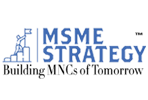Beyond Borders: A Proven Framework for MSME Market Expansion
In the dynamic Indian business environment, market expansion is both a necessity and a calculated risk for MSMEs aiming to achieve sustainable growth. While scaling up can open doors to new customers, geographies, and product lines, without a structured approach to market expansion analysis, businesses risk stretching resources thin and missing strategic opportunities.
Market expansion is less about “trying everything” and more about making data-backed, well-sequenced decisions that align with long-term objectives.
- Define Your Expansion Objective Clearly
Expansion can mean different things — entering a new city, diversifying into related products, targeting new customer segments, or even going international. Begin by asking:
- What’s the core purpose? (Revenue growth, market dominance, risk diversification, etc.)
- Does the expansion align with your brand positioning?
- What are the measurable KPIs for success?
Tip: Avoid vague objectives like “increase market share.” Instead, frame them as “Achieve a 20% revenue increase from Tier-2 cities within 18 months.”
- Research Market Potential with Indian-Specific Data
In India, regional diversity is a double-edged sword — it creates niche opportunities but demands localized strategies. Your market research should include:
- Demographics & Consumption Trends: Census data, NSO reports, and private market studies.
- Industry Growth Indicators: Government initiatives like Make in India or Startup India can influence sector growth.
- Competitor Landscape: Identify both national and regional players.
- Consumer Insights: Surveys, focus groups, and social listening tools.
- Assess Internal Readiness
Expansion success depends as much on internal capacity as on external opportunity. Audit:
- Operational Capabilities: Can current supply chains handle increased demand?
- Financial Health: Is there a sustainable funding plan without overleveraging?
- Team Readiness: Do you have leadership bandwidth and skilled manpower for the new market?
- Conduct a Risk–Opportunity Analysis
A structured SWOT (Strengths, Weaknesses, Opportunities, Threats) or TOWS matrix tailored for the target market can reveal:
- Regulatory hurdles (e.g., state-level compliance variations)
- Cultural sensitivities that could impact product acceptance
- Technology adoption gaps or infrastructure limitations in target regions
- Choose the Right Entry Strategy
Based on market dynamics, select from:
- Direct Entry: Setting up operations in the new market.
- Partnerships/JVs: Collaborating with local distributors or franchisees.
- Digital First: Leveraging e-commerce platforms for low-cost penetration.
- Pilot Projects: Testing a limited rollout before a full-scale launch.
- Develop an Execution Roadmap
A market expansion plan must be time-bound, resource-backed, and measurable. Include:
- Phased timelines (market testing → soft launch → full launch)
- Resource allocation plans (people, capital, marketing budget)
- Monitoring mechanisms (quarterly reviews, customer feedback loops)
- Monitor and Adapt in Real Time
Even the most detailed plan requires flexibility. Use tools like Power BI, Zoho Analytics, or Tableau to monitor sales trends, market feedback, and operational KPIs. Be prepared to pivot based on early signals — this agility often determines success or failure.

Actionable Steps for MSME Leaders
- Set crystal-clear expansion goals tied to measurable business outcomes.
- Gather region-specific data before committing resources.
- Audit operational and financial readiness before market entry.
- Identify 3–5 key risks and prepare contingency plans.
- Select an entry model that balances speed, cost, and control.
- Create a 12–24 month expansion roadmap with clear checkpoints.
- Invest in analytics for continuous market feedback.
At MSME Strategy Consultants (msmestrategy.com), our experienced consultants are ready to guide you through structured market expansion planning, helping you scale with confidence while minimising risks.
#MSMEStrategy #MarketExpansion #IndianMSMEs #BusinessGrowth #ScalingUp #StrategicPlanning #MarketAnalysis #SMELeadership #MakeInIndia






